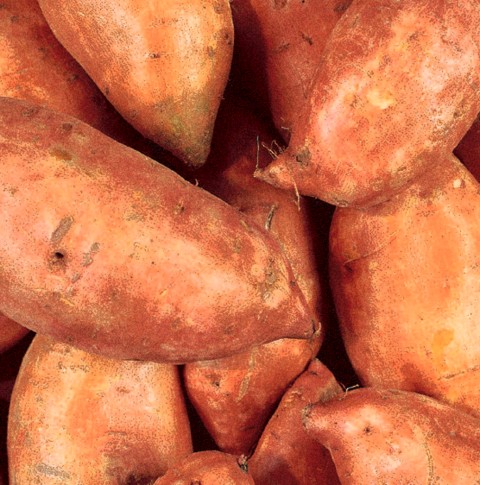My wife announced she’d stopped eating potatoes. White ones. From now on, she said, she’d be serving nothing but yams.
“Eeeww,” our daughter Kaitlyn said. “What are yams?”
“They’re like sweet potatoes,” I said. “They’re orange inside.”
“Like isn’t the same as are,” Kaitlyn said.
“You’re thirteen now, an eighth grader,” my wife said. “We can’t force them down your throat, but at least give them a try.”
***
For three months, my wife served yams twice a week. Instead of eating her yam, Kaitlyn loaded up on bread. By the second month, my wife served yams only to herself and me. “These are really filling,” I said before that month ended, and I started cutting my yam in half, pretending I’d eat the leftover part the next day or the day after that. After a few weeks the refrigerator was clogged. Kaitlyn helped me clean the half-yams out. “I’d like to throw these against something,” she said, hefting one. “I’d like to see them splatter.”
My wife acted as if she didn’t notice their absence. She cut out an article about yams and sweet potatoes from a magazine and left it on the dining room table. Sweet potatoes taper at both ends to a point, the article said. Despite their name, sweet potatoes have less sugar than yams. And though they look nearly alike, yams and sweet potatoes aren’t even related.
***
After four months, I told a story at the dinner table about yams. “This happened in Nigeria,” I said, cutting my yam in half while my wife slit hers lengthwise and dropped two pats of butter into the cleft. “Three boys told their elementary school headmistress that their friend had been transformed into a yam after accepting candy from a stranger.”
My wife gripped her butter knife and stared at me. Kaitlyn picked up an unbuttered slice of whole wheat bread. Without any potatoes, she’d grown thinner. “The headmistress,” I went on, “followed the boys to the yam and carried it to the police, who kept it. Hundreds of people came to the station to look at it while the police organized a search for the stranger. Years have passed, and no one has been found.”
“Nobody turns into a potato,” Kaitlyn said. “That boy got abducted, the same thing that happened to Jenny Masterson when we were in fifth grade.”
My wife glanced over at me. “Now you’ve gone and dug that up again,” she said.
“It’s not like there’s anybody who doesn’t know what Jenny is now, Mom,” Kaitlyn said. “She’s a pile of bones.”
My wife squeezed the sides of her yam together, and the melted butter oozed out as she held the sides together. “I can’t eat this now,” she said to me. “You and that Africa story.”
“Good,” Kaitlyn said.
“Yes,” I said. “Good.”
My wife let go of the yam, but she didn’t pick up her fork. “Neither one of you know for sure about Jenny M. Nobody does.”
“The police kept that yam for a long time just to be sure,” I said. “They waited and waited, but it didn’t change.”
“Yes, it did, Dad,” Kaitlyn said. “If they kept it there three years, it did.”
My wife grabbed her fork as if it were a weapon. “That’s enough talk about yams,” she said.
Kaitlyn took another bite of her bread. She was so thin I shuddered.



 The core workshop of SmokeLong Fitness is all in writing, so you can take part from anywhere at anytime. We are excited about creating a supportive, consistent and structured environment for flash writers to work on their craft in a community. We are thrilled and proud to say that our workshop participants have won, placed, or been listed in every major flash competition. Community works.
The core workshop of SmokeLong Fitness is all in writing, so you can take part from anywhere at anytime. We are excited about creating a supportive, consistent and structured environment for flash writers to work on their craft in a community. We are thrilled and proud to say that our workshop participants have won, placed, or been listed in every major flash competition. Community works.